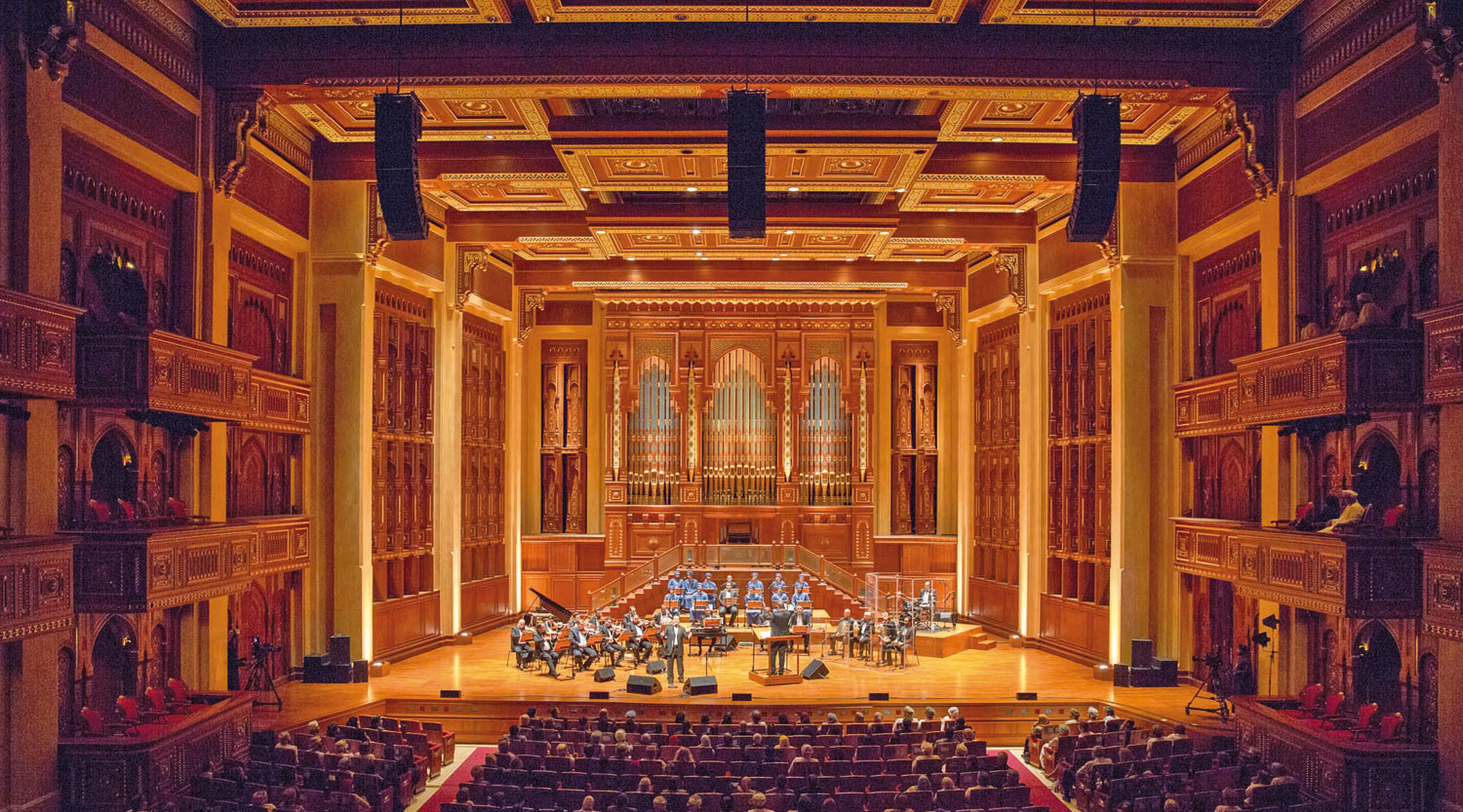

On Saturday evening the Royal Opera House Muscat was filled with music lovers from across the Arab world, from Egypt to Iraq, Tunisia to Lebanon, and of course Oman, to enjoy the double-bill entitled, ‘Ebtihalat’. A celebration fitting for the Islamic New Year Holiday, the first half featured the well-known Oud-player and singer from Tunis, Lofti Bushnak, while the popular Egyptian performer, Mohammed Tharwat, took centre stage for the second in a concert which stretched from 7 until 10 pm.
These two much revered soloists were accompanied by a 20-strong orchestra of equally weighty musicians from Egypt — an orchestra with no name, it seems — under the superb young conductor, Ahmed Taha Bassiouni. They provided a measured backing throughout the whole performance and included a kit drum, four percussionists, a solo Nay, keyboard and Qanoon.
Each half of the evening began with a moving ‘Inshad interludes’ or Dedication — Refrain from Oman’s very own Retaj Ensemble, a chorus of 11 young Omani singers under their Artistic Director, Jamil Jauzi al Koran.
They performed 3 beautifully crafted choruses, or religious chants, to open each half, with nothing more than a chord on a synthesiser for tuning or accompaniment. Their intonation and ensemble work were excellent, giving the effect of a single voice with a warm, rich timbre, difficult to achieve from anything less than a professional choir. This troupe has sung together for the past 5 years and has already achieved a place on the pan-Arab Islamic Musical stage. It was clearly a great source of pride for the Omanis in the audience.
Lofti Bushnak followed the orchestral musicians on stage dressed in a black shirt, buttoned to the neck, and while not playing his Oud in this recital, he sat on the conductor’s left throughout as he performed his 6 heart-felt settings of religious poetry. Some songs in this set were composed by Lofty Bushnak himself, and each was an intense, passionate composition, rising in rhythmic and tonal complexity to its heightened climax. Lofty’s voice is strong, powerful, controlled and always well-placed, with a dramatic intensity which makes this singer charismatically enthralling. ‘Ya Sayyedi Wa Ataitu Lak’ (I came to You, Oh my Lord) was a moving setting of an old poem by Bushnak which featured a brilliant Qanoon solo from Omar Mohsen Kamel.
The final piece, ‘A’lek Salat Allah’ (Peace Be Upon You), included a stunning solo on the bird-like Egyptian ‘Kawala’ (like the Persian ‘Nay’), played by Ibrahim Fateh El Sayed, but otherwise there was little instrumental interest from these exceptional orchestral musicians during the first half.
Part two presented a contrasting mood in Mohammed Tharwat’s more popular and accessible, but ultimately less challenging, vocal recital. Tharwat’s voice is distinctly in the bass range, sometimes wavering from the orchestra’s pitch in his upper register, but this may have been a result of technical difficulties. Everyone — instrumentalists, soloists and chorus — was amplified with individual microphones, so quite a challenge for the ROHM sound engineers.
The Sufi influence could clearly be heard in Tharwat’s compositional style with the frequent refrain-chanting from the Retaj Ensemble which had a much more prominent role in this set.
The lovely ‘Noor A’La Noor’ (Light upon Light) was mesmerising in its lyrical beauty and easy melodic line based on a popular ‘maqam’ or Arabic mode or scale. Those catchy descending sequences caught me singing along in ‘Ya Rasul Allah Ajerna’ (O messenger of Allah, Rescue Us) and captivated the audience in a hand-clapping type of participation.
There were ‘Nay’ solos from Ibrahim in every piece, another enchanting Qanoon solo from the talented Omar Kamel and the last song, ‘El Alb Ye’Shaq’ (Heart falls in love), a popular traditional Egyptian love song, heard some romantic piano music from Ahmed Sayed Idris, improvised on the House Grand.
There was some change in song order in both halves of the concert — which may not have confused the Arabic speakers in the audience — but otherwise it was an uplifting and well-balanced programme which delighted all present for the considerable 3-hour performance.
Georgina Benison
Oman Observer is now on the WhatsApp channel. Click here



